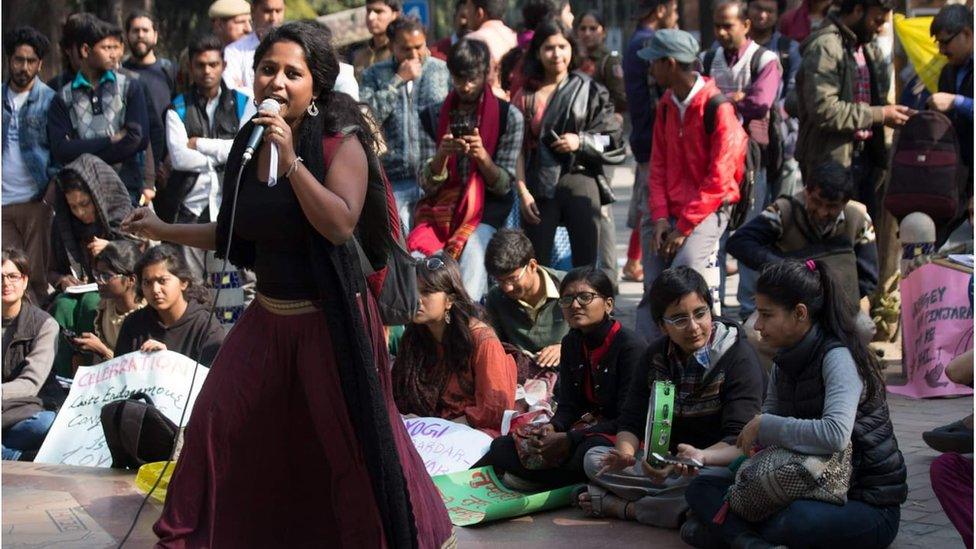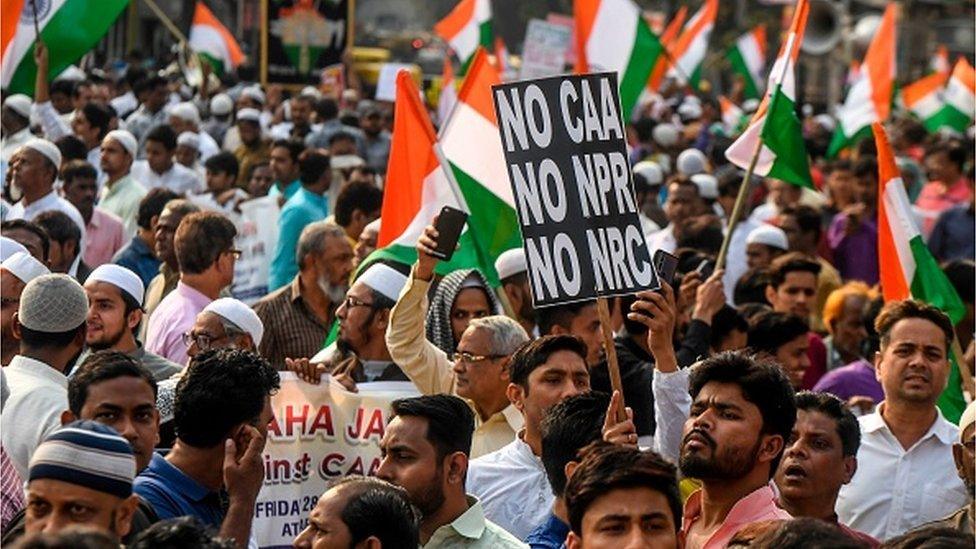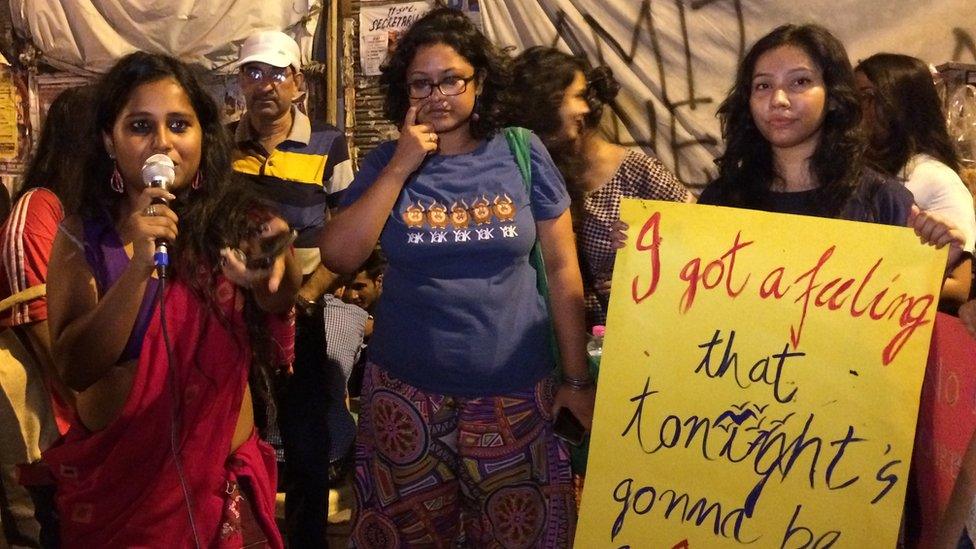India activists held over citizenship law protest
- Published

Devangana Kalita is one of the founding members of the Pinjra Tod movement in India
India has arrested two activists over an anti-government protest in the capital Delhi in February.
Natasha Narwal and Devangana Kalita took part in a sit-in against a contentious citizenship law a day before deadly riots broke out.
They are among several activists who have been arrested since India's lockdown began on 25 March.
Prime Minister Narendra Modi's government has been accused of using the pandemic to crack down on dissent.
Ms Narwal and Ms Kalita, both in their early 30s, have been remanded to custody for two days.
They are founding members of Pinjra Tod, a popular student movement that enables women to reclaim public spaces.
In a statement, the organisation said the women are facing charges of attempted murder, criminal conspiracy and obstructing public officials.
In April, police had arrested another student activist, 27-year-old Safoora Zargar. She had been active in organising peaceful protests against India's Citizenship Amendment Act (CAA), which critics say discriminates against Muslims.

'Attempt to stifle rights'
Geeta Pandey, BBC News, Delhi
I met Natasha Narwal and Devangana Kalita in October 2015 when I went to cover a protest by their group Pinjra Tod (Break the Cage).
The protesters sang, danced, played drums and recited poetry. They raised slogans decrying patriarchy and gave fiery speeches.
Pinjra Tod was formed to challenge the unreasonable curfew timings imposed by the authorities in women's hostels of Delhi University.
It angered them that while male students were allowed to stay out until well past midnight on most campuses, they were being forced to return to their accommodation by six or seven or 8pm.
Over time, their movement has spread to campuses across India, with the students speaking out for the rights of Dalits, minorities, poor workers and farmers.
They've had some reasonable successes too - several university hostels have relaxed curfew timings for female students.
Over the years, I have remained in touch with Devangana, we've spoken a few times and I receive regular WhatsApp updates from her about their protest plans.
In their arrest, the police appeared to have followed the same playbook they have used for other activists protesting against the new citizenship law which is widely regarded as being discriminatory towards Muslims.
The action against them is a matter of concern, critics say. They add that it appears to be an attempt to stifle the fundamental right to protest in a democracy.
The young women are not criminals, they are just activists fighting for a better India, an India where gender, class and religious differences have no place, they add.

The law sparked massive protests across India - both Hindu and Muslim protesters said the law violated India's secular values and was unconstitutional.
But one of these protests in north-east Delhi - the sit-in which Ms Narwal and Ms Kalita attended - sparked a political rally in favour of the law the following day.
Later that day, minor clashes were reported between Hindus and Muslims. But the situation escalated and soon turned into deadly riots that killed 53 people, mostly Muslims.
In recent months, police have also arrested Meeran Haider, a research scholar and member of the Jamia Coordination Committee, Shifa-Ur-Rehman, president of the Jamia Millia Islamia Alumni Association, Gulfisha, an MBA student, and Ishrat Jahan, a former municipal councillor, for participating in protests against the citizenship law.
The arrests have been condemned by civil society and rights groups who have called them "illegal" and a "grave abuse of state power", writes the BBC's Geeta Pandey.
Campaigners say the hostel curfews are ''discriminatory''
Related topics
- Published12 March 2024

- Published14 October 2015
